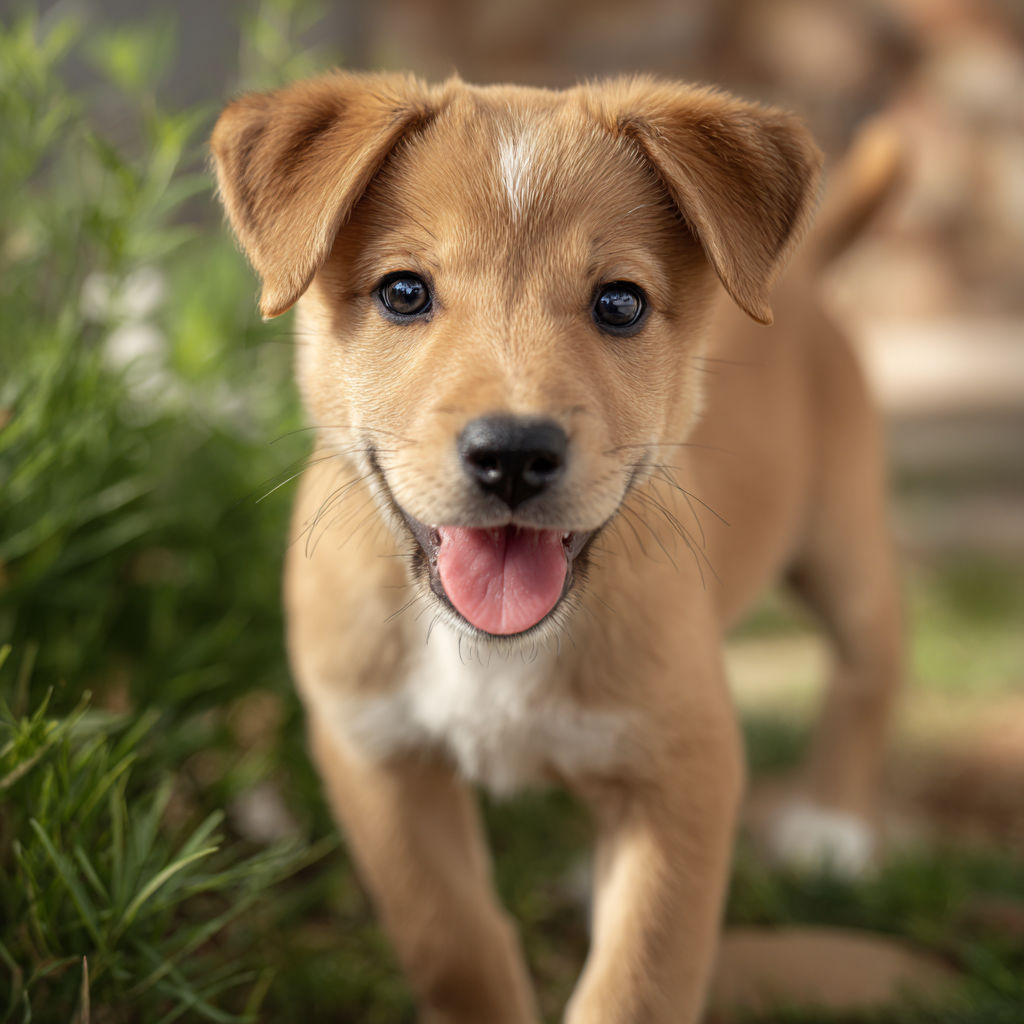7 Reasons Why Puppies’ Tongues Flap – It Means They Want Attention? 🐶
Have you ever noticed your adorable puppy’s tongue flicking or flapping unexpectedly? 🥺 Many dog owners wonder whether this behavior indicates a need for attention or something else entirely. Understanding why puppies’ tongues flap is crucial for interpreting their body language and ensuring their well-being. In this post, I’ll explore the top reasons for puppy tongue flapping and shed light on what this behavior truly means. By the end, you’ll be better equipped to recognize if your puppy’s tongue movements are signals for attention or just a part of their natural behavior. Let’s dive into the fascinating world of canine tongue behavior and decode what your furry friend may be trying to tell you.
1. Regulation of Body Temperature: Cool Down Time
Puppies can’t sweat like humans so they rely on panting and tongue flicking to regulate their body temperature. When they get hot or excited, their tongues may flap as a natural cooling mechanism. This puppy behavior tongue flapping is especially common during play, after exercise, or on hot days. Recognizing this is important as it indicates your pup is just trying to stay comfortable and healthy. It’s not necessarily a sign they want attention but rather a physical response to environmental factors or physical activity.
2. Anxiety and Stress Relief
Puppies often use tongue flicking as a calming signal when they feel anxious or stressed. This dog tongue flapping meaning connects to their innate ability to self-soothe. If your puppy is in an unfamiliar setting or experiencing new situations, you might notice more frequent tongue movements as part of their puppy body language cues in stress. Understanding this helps prevent misinterpreting their behavior as attention-seeking when it’s actually anxiety management.
3. Exploration and Curiosity
Puppies are naturally curious and use their tongues to explore their environment. Flicking their tongues allows them to investigate new textures, smells, and objects around them. This behavior is part of their puppy behavior tongue flapping, showing their playful and inquisitive nature. It’s a healthy sign of discovery and learning rather than an indication of seeking attention.
4. Social Behavior and Communication
In canine world, tongue flapping plays a role in social communication and play. Some puppies flap their tongues as a friendly gesture or to invite interaction. It’s a form of communication that can signal excitement, friendliness, or even submission. When your puppy flaps their tongue during interactions, it might mean they’re trying to tell you they want to play or simply connect with you. Remember, not all tongue movements are attention-seeking but part of their social cues.
5. Imitating Their Owners or Other Animals
Puppies often imitate behaviors they observe in their human or animal family members, including tongue flicking or licking. This imitation helps them bond and learn social norms. If your puppy sees you or another dog licking, they might mimic the action, which is a common puppy behavior tongue flapping pattern. This isn’t necessarily an attention-seeking act but a way they engage in social learning.
6. Boredom and Excess Energy
If your puppy isn’t sufficiently stimulated or exercised, they may develop boredom which can lead to repetitive behaviors such as tongue flapping. Excess energy needs an outlet, and tongue flicking can be a manifestation of this pent-up vitality. Providing enough mental and physical activity can help reduce this behavior and improve your puppy’s overall happiness.
7. Physical Characteristics and Breed Traits
Some breeds are more prone to tongue flapping due to their physical features. For instance, brachycephalic breeds with short noses often have their tongues slightly out and may display more tongue movements as a characteristic trait. Recognizing breed-specific traits helps distinguish normal behavior from signs of discomfort or health issues. It’s essential to monitor your puppy for other signs if the tongue flapping seems excessive or abnormal.

While puppy tongue flicking and flapping might look adorable, it’s not always an indication that your pet wants attention. Instead, it’s often part of their natural body language or a response to environmental stimuli. Recognizing these cues helps you respond appropriately and build a stronger bond with your furry companion.
Conclusion
Understanding the reasons for puppy tongue flapping enhances your ability to interpret their behavior accurately. Whether it’s cooling down, exploring, calming, or communicating, each movement offers insight into your puppy’s needs and emotions. Remember to consider the context and overall body language — is your pup playful, anxious, or tired? Maybe they’re just being curious — and occasionally, they might be seeking attention. The key is observing and responding with love and patience. If you notice excessive or unusual tongue movements, consulting a veterinarian is intelligent to rule out health issues. By paying attention to these signs, I believe you’ll deepen your bond with your pup and ensure they’re happy, healthy, and well understood.
Share Your Experience! 🐕
If you’ve noticed your puppy exhibiting tongue flapping behavior, share your stories below or ask questions. I love hearing from fellow dog lovers and helping you decode your puppy’s body language. Remember, every puppy is unique, and understanding their cues is part of the joy of having a furry friend! For more tips on puppy behavior and training, subscribe to my newsletter or check out other articles on dog training and care.